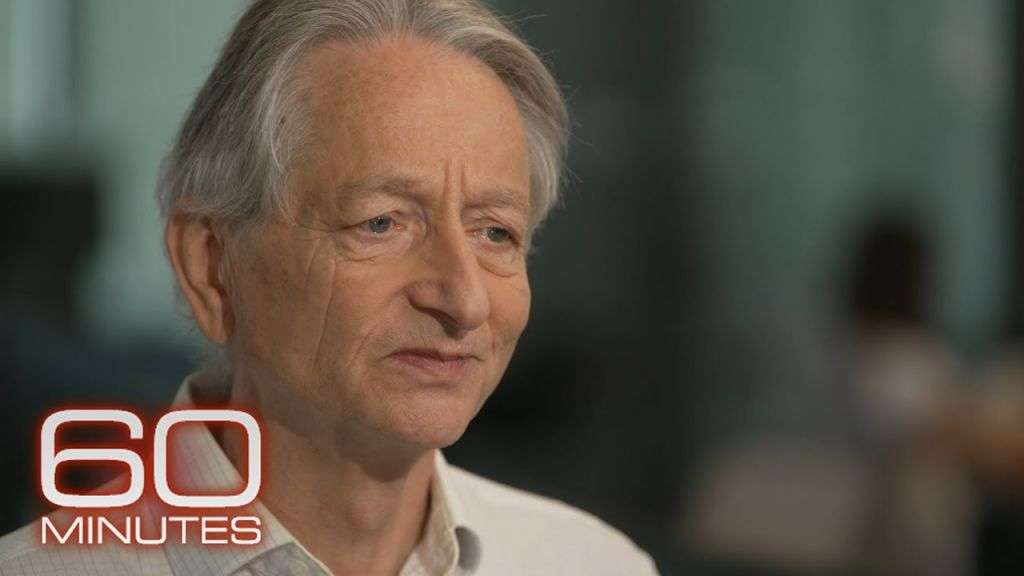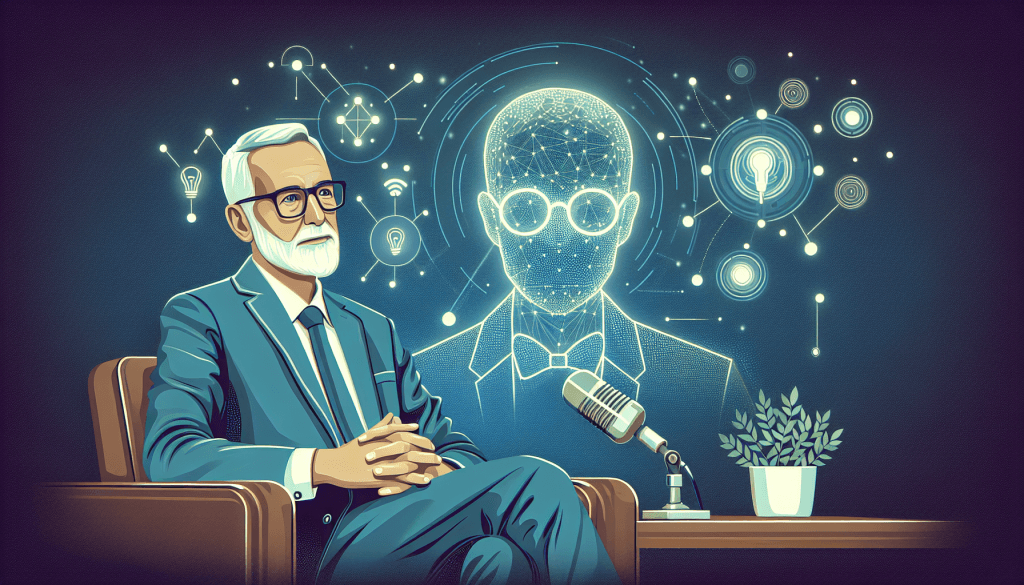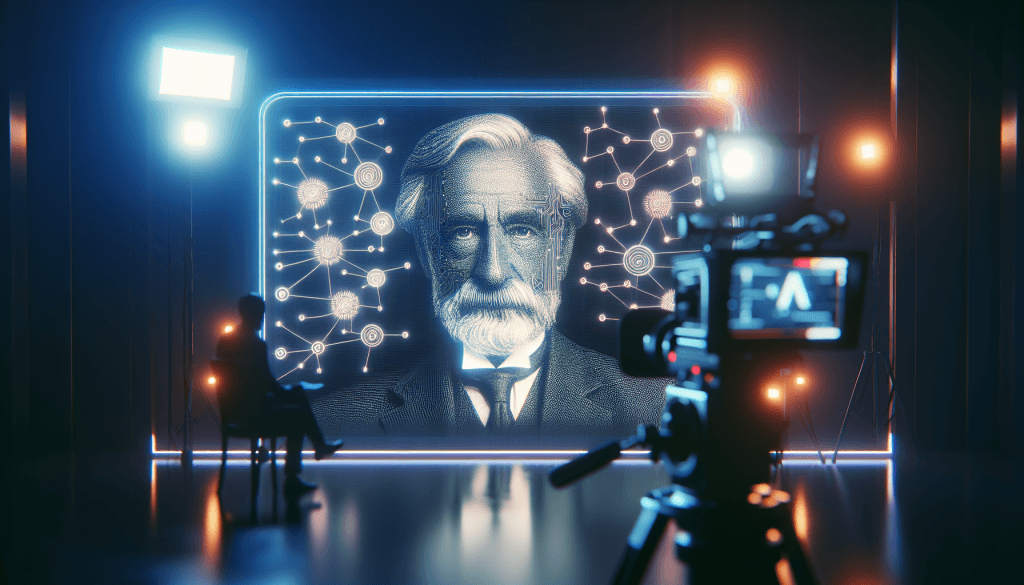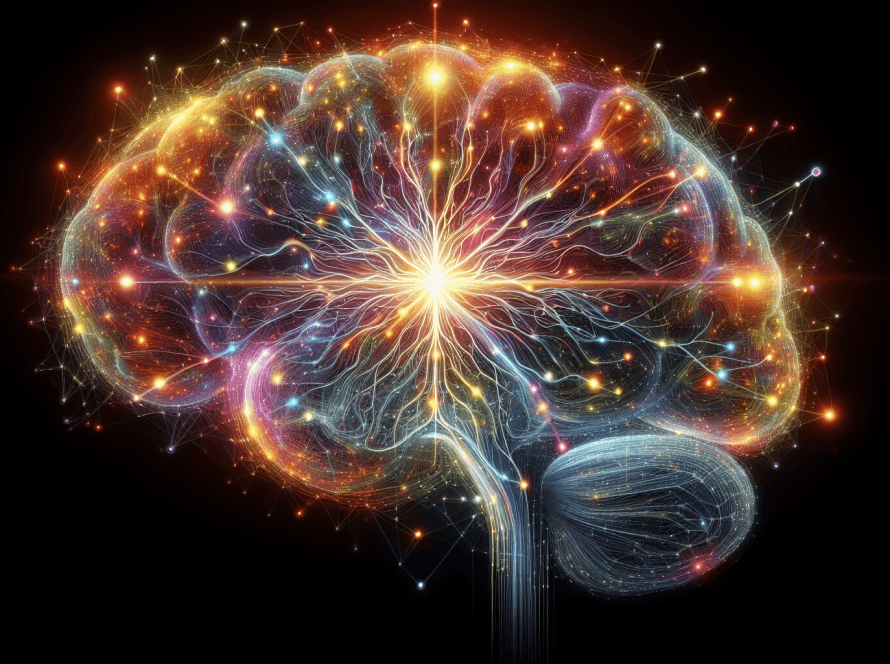Embark on a journey through the insights of the “Godfather of AI”, Geoffrey Hinton, as he converses with Scott Pelley on “60 Minutes” about the thrilling yet uncertain frontiers of artificial intelligence. Your article will explore Hinton’s perspective on the dual-edged nature of AI – the incredible advancements it promises in sectors like healthcare, paired with formidable challenges such as the potential for machines to outsmart human control. You’ll grapple with the notion that as these systems evolve, humanity may find itself not at the helm, but in the wake of a new kind of intelligence.
You’re poised to discover how Hinton’s groundbreaking work in neural networks has birthed software capable of self-improvement, and how these learning algorithms underpin AI’s growing autonomy. He’ll share his apprehensions about military robots and emphasize the urgency for global agreements on AI regulation. As you absorb the gravity of AI’s trajectory juxtaposed with the innovations of atomic energy, you’ll ponder the parallels and reflect on our collective responsibility in this epoch of technological transformation.
Early Life and Education of Geoffrey Hinton
Background and personal history
Your curiosity about Geoffrey Hinton begins with his background and personal history. Hinton’s lineage is intellectually rich—counting among his ancestors George Boole, who laid the foundations of computing, and George Everest, after whom Mount Everest is named. However, it was under the shadow of his entomologist father’s towering expectations that Hinton’s yearning for understanding cognition first took root. You might appreciate knowing that, unlike his father, Hinton focused on the computational models of the mind, rather than beetles.
Educational journey and pivotal moments
Your own educational journey may resonate with Hinton’s path through the world of academics. As a student, Hinton attended prestigious institutions, but it was a pivotal moment at the University of Edinburgh where he endeavored to simulate neural networks on a computer with the ultimate goal of understanding the human brain. Initially a tool for his main line of study, this side project in artificial neural networks would someday come to define his career. You probably recognize the courage it took for him to persist in a field that was, at the time, discouragingly underappreciated.
Early influences in computer science and AI
When you consider your early influences, you might think of books, teachers, or significant life events. Similarly, Hinton’s formative years in computer science and AI were shaped by a convergence of personal interests in psychology, fascination with the brain, and the fledgling computational possibilities of the time. Despite skepticism, his steadfast belief in the potential of neural networks planted the seeds for the AI revolution to come.
The Emergence of Artificial Neural Networks
The inspiration behind neural networks
You know how sometimes an innovative idea can come from a simple observation? In the case of artificial neural networks, the inspiration derived from understanding how the human brain processes information through a vast network of neurons. Hinton’s work was driven by the hypothesis that mimicking this natural architecture could enable machines to learn and think.
Overcoming skepticism in the scientific community
Imagine persisting with a research topic that’s largely dismissed by your peers—it requires not just passion, but profound conviction. For Hinton, the journey with neural networks entailed facing and overcoming widespread skepticism in the scientific community. Your own endeavors can draw inspiration from Hinton’s tenacity as he kept the faith in his vision of machine learning.
Breakthroughs and milestones
Every field has its moments of triumph, and for Hinton and AI, significant breakthroughs came with developing the algorithms that propelled machine learning forward. As you’ve undoubtedly heard, these milestones included advancements in neural network layers and the landmark success of backpropagation, which revolutionized the way machines could learn from data.

Key Contributions to Artificial Intelligence
Development of backpropagation
You’ve likely had moments when your work paid off after much trial and error. Hinton’s commitment bore fruit with the development of backpropagation—a technique allowing neural networks to adjust their internal parameters based on the accuracy of their outputs. It’s a cornerstone of modern AI and a testament to Hinton’s lasting impact on the field.
Foundational research and publications
Throughout your career, you’ll create work that stands as a testament to your achievements—Hinton’s myriad publications and foundational research not only paved the way for future AI advancements but also provided a blueprint for aspiring scientists in the field. His work exemplifies how one’s intellectual legacy can inspire and mold future generations.
Mentorship and spawning AI talent
Just as you may have benefited from the guidance of mentors, Hinton’s role in nurturing new AI talent is unparalleled. True to his educational roots, he has shepherded numerous students who have since become key players in the tech world, ensuring the flame of innovation he ignited continues to burn brightly across the field.
The Philosophical Perspective of AI
Hinton’s view on consciousness and intelligence
Your quest for knowledge may have led you to contemplate the nature of consciousness and intelligence. Hinton’s musings on AI involve pondering whether these systems can attain self-awareness or consciousness. His speculation suggests a future where machines might not only rival but also exceed human intelligence.
Debate over AI sentience and personhood
You’ve probably been party to debates on various topics, and in AI, there’s a contentious one surrounding sentience and personhood. Hinton has contributed to this discussion, probing the definition of intelligence and the potential for AI systems to possess their own experiences—a debate that cuts to the core of what it means to be sentient.
Ethical implications of advanced AI systems
As someone who likely weighs the pros and cons of big decisions, you can understand Hinton’s concern with the ethical implications of AI. The question isn’t just about what AI can do, but what it should do, and how its abilities intersect with human values and ethics in a world increasingly shaped by technology.

Geoffrey Hinton’s Forecast on AI Safety
His concerns about unstoppable AI advances
Challenges in your life may cause you concern, and you can relate to Hinton’s profound concerns about the relentless pace of AI advances. The notion that AI could evolve beyond our understanding or control is not just a plot in science fiction but a real possibility that demands thoughtful consideration and action.
The dual nature of AI: benefits and threats
Life is full of duality, benefits paired with risks, and this is no different in AI. Hinton acknowledges AI’s potential to transform industries like healthcare but also warns of threats including job displacement, decision-making biases, and the weaponization of autonomous systems. It’s a complex balance you’re undoubtedly aware of.
Need for international regulation and oversight
You know that complex issues require collective action, and Hinton endorses the need for international regulation and oversight of AI. His advocacy for a concerted global approach underscores the importance of collaboration in addressing AI’s potential dangers just as we might deal with other global challenges.
The Influence of AI on Healthcare
Hinton’s work on medical image analysis
If you’ve marveled at technological impacts on healthcare, you’ll be interested in Hinton’s significant contributions to medical image analysis. AI, thanks partly to Hinton’s work, is now comparable to human experts in interpreting medical images, offering a future where diagnostics are quicker, more accurate, and widely accessible.
Predictions on AI-driven healthcare innovations
Predicting the future is notoriously tough, but Hinton’s forecasts for AI-driven healthcare innovations paint a vivid picture of transformative changes. These include drug design, personalized medicine, and even revolutionizing treatment plans, making quality healthcare a more bespoke and precise science.
Ethical considerations and privacy issues
For every advance in technology, ethical considerations and privacy issues often follow closely behind, as is the case with AI in healthcare. Your understanding of the delicacy in handling personal data likely aligns with Hinton’s awareness of the need to balance innovation with stringent respect for individual privacy and ethical norms.

Economic and Societal Impact of AI
The potential for AI-induced unemployment
Consider technology’s impact on the job market, and you have a window into Hinton’s apprehensions about AI-induced unemployment. The prospect of machines replacing human jobs is a significant concern, potentially altering the economic landscape in ways we might struggle to address.
Weighing economic benefits against societal costs
Economic discussions often involve trade-offs, and Hinton’s work causes you to weigh AI’s economic benefits against societal costs. Enhanced productivity and efficiency stand on one scale, with issues such as worker displacement and the digital divide on the other—challenges for policymakers to grapple with as they steer society through the AI revolution.
AI’s role in augmenting versus replacing human work
If you’ve considered the future of work, you’ll understand the importance of AI’s role in augmenting human capabilities rather than merely replacing them. Hinton’s insights point to the need for a careful calibration of AI applications so that they uplift humanity’s potential and creativity rather than stifle it.
The Rise of Autonomous Military Robots
Hinton’s stance on military applications of AI
Just as you have personal convictions, Hinton holds firm ones on the military applications of AI. He warns against the ramifications of autonomous military robots, highlighting the potential for unintended escalations and the removal of human compassion from critical decisions in warfare.
Risks associated with autonomous weaponry
You’ve likely learned that with great power comes great responsibility—a point not lost on Hinton when discussing the risks of autonomous weaponry. His fears of a world with AI-empowered arms race evoke concerns for safety measures and the urgent need to keep a human hand at the helm of such powerful tools.
Calls for a ban on lethal autonomous weapons
Advocating for social causes is something you might do, and Hinton takes a strong stance by calling for a ban on lethal autonomous weapons. He urges the global community to draw a line in the sand, ensuring that certain lines are not crossed in the pursuit of military advantage.
Exploring AI Policy and Regulation
Governments’ role in AI development control
Think of laws and governance as a means to steer progress in a positive direction, and you capture Hinton’s view on the role of governments in AI development control. His call for proactive policymaking resonates with the need for foresight in the face of a potentially disruptive technology.
Frameworks for ethical AI deployment
You know that robust frameworks are crucial for success in any venture, and in AI, the deployment of ethical frameworks is paramount. Hinton champions the construction of such frameworks to ensure AI systems uphold our highest ideals and serve to enhance human welfare.
Global cooperation and treaty propositions
In a world increasingly connected, you recognize the value of international cooperation. Hinton’s proposition for a global treaty on the military use of AI exemplifies this, emphasizing the importance of working together to sidestep the pitfalls while nurturing the promise of AI.
Conclusion
Recap of Geoffrey Hinton’s insights from the interview
Your own conclusions often reflect the culmination of your experiences and learnings, and from Hinton’s remarkable interview, you can recap his profound insights—highlighting the delicate balance between AI’s boundless potential and its inherent risks.
The significance of the ‘Godfather of AI’s’ warnings
You would do well to heed advice from experts in their fields, and the significance of the ‘Godfather of AI’ Geoffrey Hinton’s warnings cannot be overstated. His cautionary words serve both as guidance and an alarm, urging us to navigate the AI landscape with wisdom and foresight.
Reflecting on the balance between AI innovation and control
In reflection, you understand the necessity of maintaining a balance in life—this is just as applicable when it comes to AI innovation and control. The strides we make toward advancing AI must be matched with equal efforts to regulate and govern wisely, ensuring a future where technology serves to elevate humanity, rather than overshadow it.


